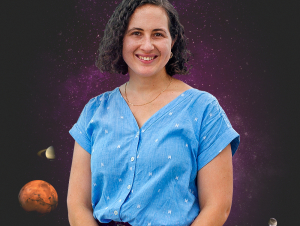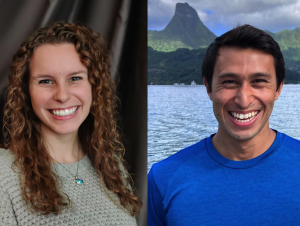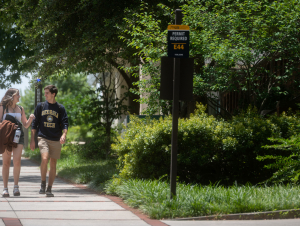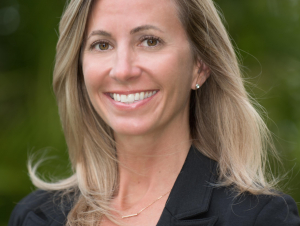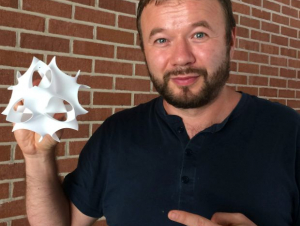To request a media interview, please reach out to experts using the faculty directories for each of our six schools, or contact Jess Hunt-Ralston, College of Sciences communications director. A list of faculty experts is also available to journalists upon request.
Latest News
Earth and Atmospheric Sciences Assistant Professor Frances Rivera-Hernández is the recipient of two new research grants. As a 2022 Scialog® ‘Signatures of Life in the Universe’ Fellow, and co-investigator of a new $2.9 million NASA Planetary Science and Technology from Analog Research (PSTAR) grant, she will help develop smarter autonomous rovers and robotics for the Moon and Mars, and hunt for chemical signs of life beyond Earth.
Ph.D. students Cassandra Shriver, in Quantitative Biosciences (QBioS) and Noam Altman-Kurosaki in Biological Sciences have been selected to receive an ARCS® Scholar Award: Achievement Rewards for College Scientists.
The Georgia Institute of Technology is announcing its intention to launch a new academic unit dedicated to lifetime learning. Establishing a new academic unit is a long process, and Tech is at the very beginning. Dean Nelson Baker and Dean Charles Isbell are leading the effort, which currently has three working groups.
On Oct. 17, Jennifer Chirico will join Infrastructure and Sustainability (I&S) as the associate vice president of Sustainability. Originally from Atlanta, Chirico brings 20 years of sustainability experience to the Institute.
In a significant response to urgent climate-related threats, a new international center headquartered at Georgia Aquarium, endorsed by the UN Decade of Ocean Science for Sustainable Development, will support versatile, collaborative solutions to improve the health of the world’s oceans. The Ocean Visions – UN Decade Collaborative Center for Ocean-Climate Solutions (OV – UN DCC), a partnership with Ocean Visions, Georgia Aquarium, and Georgia Tech, is the only center of its kind in the United States.
A team led by Georgia Tech mathematician Anton Leykin has developed a powerful new technique for solving problems related to 3D reconstruction. The research team’s paper has also won the prestigious best paper award at CVPR 2022. The team hopes that their method — which can solve some of these problems significantly faster than any previous technique — could change how these problems are approached and solved in mathematics, computer science, and industrial applications.

